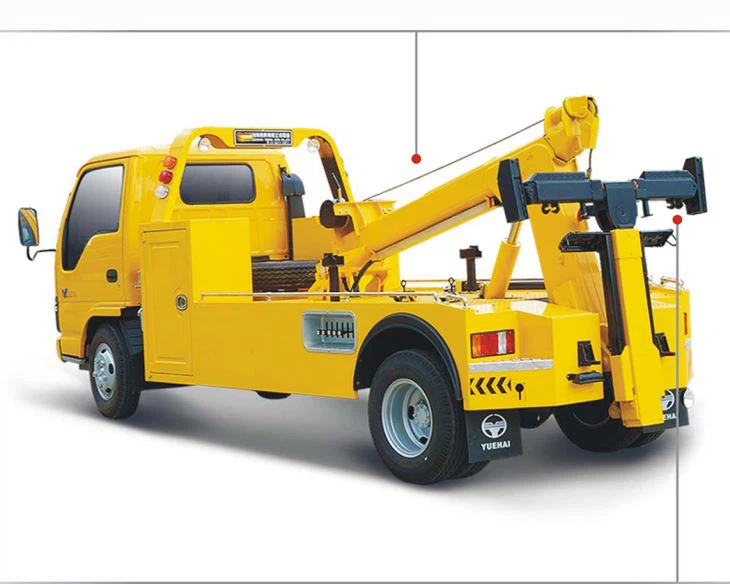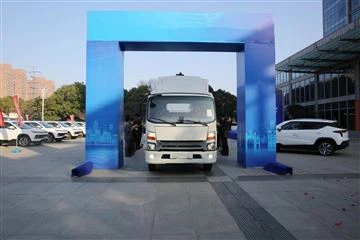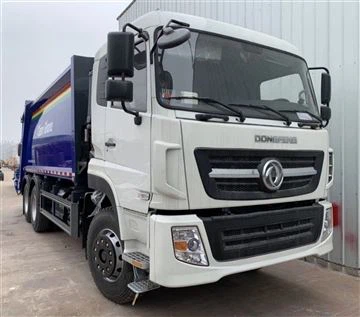Custom Roll Off Trucks: The Ultimate Guide

Roll off trucks are essential vehicles in the waste management and construction industries. Their versatility and efficiency make them a popular choice for transporting a variety of materials. Among these vehicles, custom roll off trucks stand out for their tailored features that meet specific operational needs. This comprehensive article delves into the world of custom roll off trucks, exploring their benefits, specifications, and how to choose the right one for your business.
What Are Custom Roll Off Trucks?

Custom roll off trucks are specialized vehicles designed to handle the transportation of containers and dumpsters. They feature a unique design, enabling the containers to roll off the back of the truck for easy loading and unloading. These trucks can be customized to fit various industries, including construction, demolition, and waste management.
Benefits of Custom Roll Off Trucks
1. Tailored Features

Custom roll off trucks can be equipped with specific features that cater to the unique needs of a business. This includes custom dimensions, loading mechanisms, and enhanced safety features.
2. Increased Efficiency
By utilizing custom-built roll off trucks, businesses improve operational efficiency. Customized designs allow for quicker load and unload times, minimizing downtime and increasing productivity.
3. Enhanced Safety
Customization can also enhance safety. Features like backup cameras, warning lights, and better suspension systems can be integrated to reduce the risk of accidents on-site.
4. Cost-Effectiveness
Investing in a custom roll off truck can lead to long-term savings. Tailored solutions can address specific needs, reducing the chances of needing additional equipment for different tasks.
5. Improved Branding Opportunities
Custom roll off trucks offer branding opportunities through unique designs, logos, and color schemes. This not only enhances visibility on the road but also promotes the business effectively.
Key Components of Custom Roll Off Trucks
1. Chassis
The chassis is the framework of the truck, determining its overall strength and durability. Customizing the chassis allows for specific weight capacities and additional support systems.
2. Container Design
Containers can be customized in size, shape, and material. Options like lightweight materials can enhance fuel efficiency, while sturdier designs may be required for heavier loads.
3. Hydraulic System
The hydraulic system is crucial for the loading and unloading mechanism. Custom hydraulic systems can be designed for enhanced speed and efficiency, suitable for a particular load type.
4. Safety Features
Adding safety features such as anti-lock brakes, better lighting, and smart navigation systems can significantly reduce accidents and enhance operational efficiency.
How to Choose the Right Custom Roll Off Truck
1. Assess Your Needs
Before purchasing, analyze the specific needs of your business, such as the types of materials you will transport, the frequency of use, and the required load capacity.
2. Consult with Manufacturers

Engage with manufacturers to discuss your requirements. They can provide insights into the latest technologies and customizations available.
3. Review Compliance and Regulations
Ensure that your custom roll off truck complies with local and federal regulations, including safety standards and emissions guidelines.
4. Budget Considerations
Establish a clear budget before starting the customization process. Consider both the initial purchase price and long-term operational costs, such as maintenance and repairs.
Specifications to Consider for Custom Roll Off Trucks
| Specification | Description |
|---|---|
| Weight Capacity | Determine the maximum load your truck needs to carry. |
| Container Size | Consider the sizes of containers you will need for various operations. |
| Engine Type | Choose between diesel, propane, or electric engines based on efficiency and environmental impact. |
| Transmission | Options include manual or automatic transmissions depending on operator preference. |
| Custom Features | Include features like additional storage, enhanced lighting, or additional safety mechanisms. |
Practical Examples of Custom Roll Off Truck Implementations
1. Construction Industry
In the construction industry, a custom roll off truck can be designed with a robust chassis that accommodates heavier loads, along with specialized containers for debris. This ensures efficient waste management on-site.
2. Municipal Services
For municipal waste collection, custom trucks may have integrated compactors or specialized bin sizes for residential waste collection, enhancing efficiency and service capacity.
3. Landscaping Businesses
Landscaping companies might require trucks with larger containers for carrying soil, mulch, or landscaping debris. Custom designs help meet these specific needs effectively.
Maintenance Tips for Custom Roll Off Trucks
1. Regular Inspections
Perform routine inspections on critical components such as brakes, tires, and hydraulic systems to ensure operational safety and efficiency.
2. Lubrication
Keep all moving parts well-lubricated to avoid wear and tear that can lead to costly repairs in the future.
3. Monitor Fluid Levels
Regularly check and maintain fluid levels for hydraulic systems and engines to prevent overheating or mechanical failures.
4. Follow Manufacturer’s Recommendations
Adhere to the manufacturer’s maintenance schedule and guidelines for repairs and part replacements to extend the life of your truck.
Frequently Asked Questions (FAQ)
1. What are the typical uses for custom roll off trucks?
Custom roll off trucks are typically used in construction, demolition, waste management, and landscaping to transport containers and materials efficiently.
2. How much does a custom roll off truck cost?
The cost of custom roll off trucks can vary widely, ranging from $30,000 to over $100,000 depending on the specifications and custom features added.
3. How can I ensure my custom roll off truck meets regulatory standards?
Consult with local transportation authorities and ensure that the manufacturer complies with federal and local regulations during the customization process.
4. What is the average lifespan of a custom roll off truck?
With proper maintenance, a custom roll off truck can last anywhere from 10 to 15 years, although this can vary based on usage and care.
5. Can I retrofit an existing roll off truck?
Yes, many features can be retrofitted to existing roll off trucks, such as upgraded hydraulic systems, safety features, or additional storage options.
6. Are there environmentally friendly options for custom roll off trucks?
Yes, electric roll off trucks and those with lower emissions engines are becoming more available, offering more sustainable options for waste transportation.
